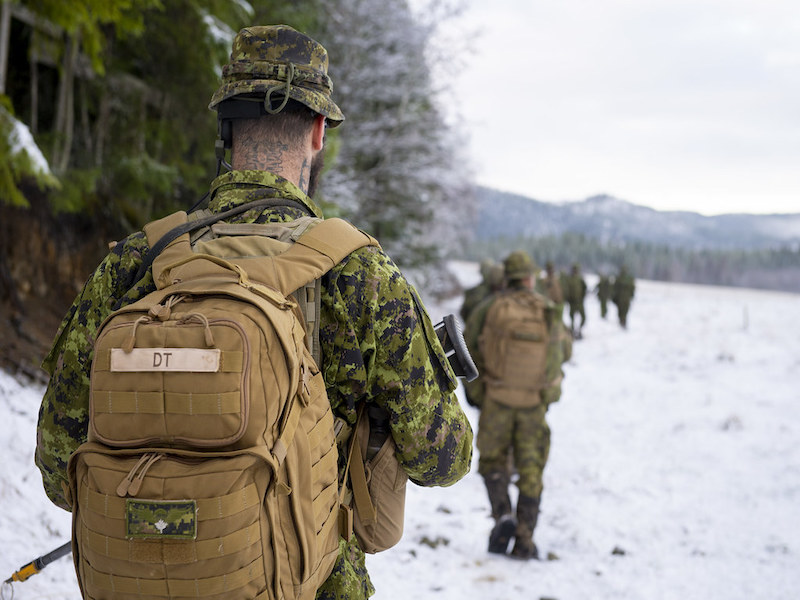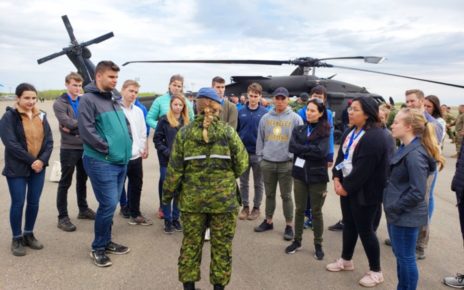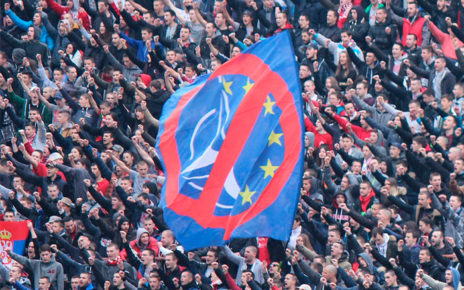A common refrain heard from the members of the Canadian Armed Forces (CAF) who visited the NATO Field School is that, “to win the war, one must first win the narrative.” This aphorism is instructive, as within Canada, the public’s perception of the armed forces is one of its critical sources of legitimacy as an institution. The CAF’s narrative – by which is meant the perception it cultivates by disseminating stories or events in a way that ascribes a specific meaning to its existence – is floundering and causing its institutional legitimacy to erode. In recent weeks, senior members of the armed forces have stepped aside due to scandals, while the war in Afghanistan, Canada’s most significant engagement abroad since the Korean War, winds down amid broader questions about its legacy. At the same time, CAF missions are routinely affected by disinformation operations, underscoring the role of narratives in contemporary warfare and Canada’s need to solidify its narrative. At a time of tremendous change, one fact remains clear – the narrative around Canada’s military is shifting and the CAF must first reinforce the public’s confidence in it if it is going to remain a respected institution in Canadian society.
According to its own regulations, Canadian Armed Forces members must demonstrate exceptional behavior to maintain the trust of the Canadian public. Variations of this standard were central to the conversations between senior members of the CAF and NATO Field School participants. However, the CAF has recently faced the fallout of sexual misconduct allegations at its highest levels, raising doubts about the continuation of a trusting relationship between the CAF and the public. These allegations extend to the highest levels of the CAF to include former chief of the defence staff, General Jonathan Vance. Vance has been accused of multiple counts of sexual misconduct, including allegedly carrying out a relationship with a subordinate. More recently, Vice Chief Lt.-Gen Michael Rouleau and the head of the Royal Canadian Navy, Vice-Admiral Craig Baines, were found to have fraternised with Vance, calling into question the objectivity of their investigation against him. Struggling with ongoing recruitment challenges that have been amplified by the pandemic, the CAF faces a reckoning about both its values and its support from the Canadian public.
While the CAF has recently faced these domestic pressures, the end of the US-led mission in Afghanistan also represents the conclusion to a significant chapter in Canadian military history. Many question the war’s foundational assumptions, as new revelations are brought to light. The release of the Afghanistan Papers revealed a war effort that lacked a long-term strategy, the progress of which would likely be reversed, as admitted by Gen. David Richards, commander of NATO forces in the region from 2006 to 2007. A prominent scholar on the Afghanistan mission described the operation to the NATO Field School as one for which the Allies – including Canada – were routinely underprepared.
Patterns of silence from political and military leaders on the actions of the CAF continue to undermine the public’s trust and were evident during the Afghanistan mission. The release of the Manley report in 2008, and the subsequent failure of the Harper government to implement its recommendation to publicly communicate Canada’s role, rationale, and assessment of the mission, highlights a phenomenon that continued under the Trudeau government. Harper’s office tightly controlled the details of the Afghanistan mission during the height of the conflict, undercutting the public’s access to critical information about the war effort. The Trudeau government has also been publicly indecisive in its handling of the conflict, particularly in transitioning Canada’s role from one focused on security to development. David Mulroney, the former head of the Afghanistan Task Force, called a review of the Canadian mission “overdue”, once more demonstrating the failures of successive governments to provide for informed public debate about the CAF’s role in Afghanistan.
Information and narratives are not only elements of establishing trust between armed forces and the populations they defend, but are increasingly part of contemporary warfare as well. The guests of the Field School representing the Royal Canadian Navy, the Canadian Joint Operations Centre, and CFB Wainwright all spoke about the threat of weaponized information. While engaged with the NATO Enhanced Forward Presence in Latvia, Canadian soldiers were the subject of a Russian pandemic-related disinformation campaign that claimed they were spreading the coronavirus locally. This campaign was countered effectively through transparent demonstrations of the battle group’s efforts to avoid spreading the virus, an element lacking in the CAF’s domestic messaging.
The pandemic presented not only a challenge to the CAF’s reputation abroad, but at home as well, where the CAF recognized the threat of disinformation. In response, it developed an operational plan to limit civil disobedience in early April 2020 through the manipulation of information. The proposed operation included setting up loudspeakers and portable radio stations to allow the government to control its own messaging and were modeled on techniques used in Afghanistan to convince villagers to support the Afghan government. These types of campaigns have become more common, driven both by a rising distrust of authorities within the West and an aggressive Russia taking advantage of domestically-produced divisions between Western societies and their leaders.
Buffeted by an increasingly skeptical public and malignant international actors, the CAF is in danger of “losing the narrative” about its status as a vaunted institution. In combatting this phenomenon, the CAF must first become comfortable with telling the truth rather than continuing to seek methods to manipulate it for gain. It is uncomfortable for leaders within a democracy to admit failures. However, it is more uncomfortable still to cover up those failures and continue to hope to gain the public’s trust. The CAF should be open to debate and disagreement about its mission and policies, both hallmarks of the democratic process it has sworn to protect. This will have the added effect of combatting misinformation as well, which thrives in an environment of official secrecy and hypocrisy. All narratives have a purpose and the narrative told by Canada’s military is no different – the difference is by whom it is believed.
Photo: “Exercise Trident Juncture 18”, by NATO, via Flickr. Licensed under CC BY-NC-ND 2.0.
Disclaimer: Any views or opinions expressed in articles are solely those of the authors and do not necessarily represent the views of the NATO Association of Canada.




